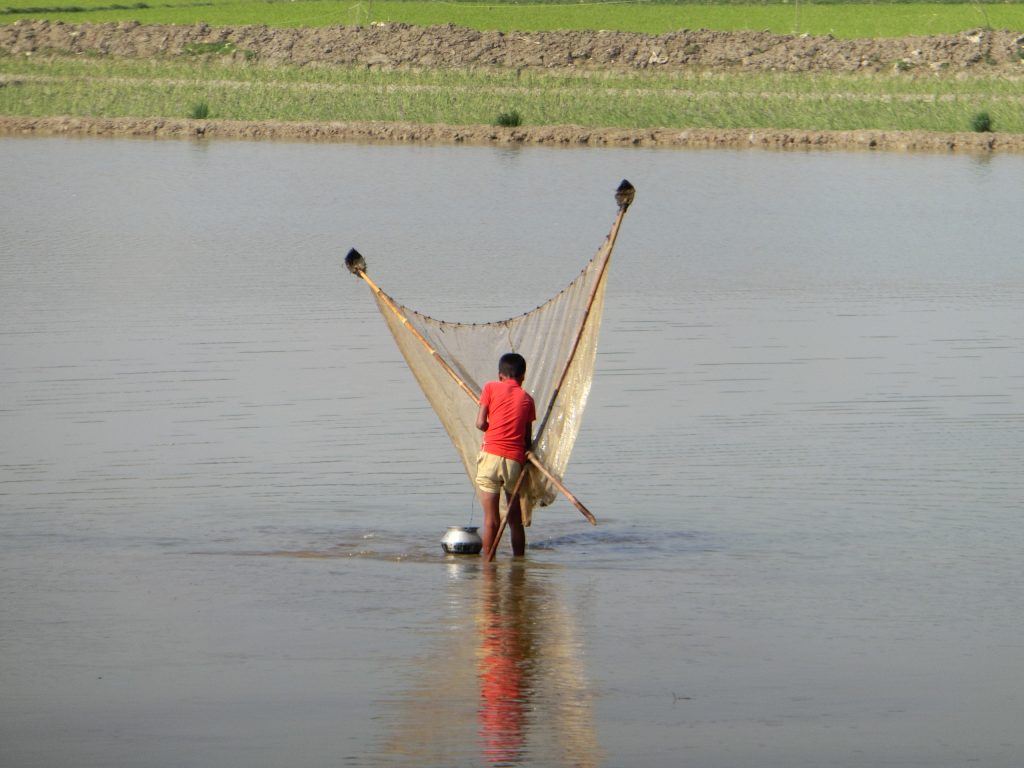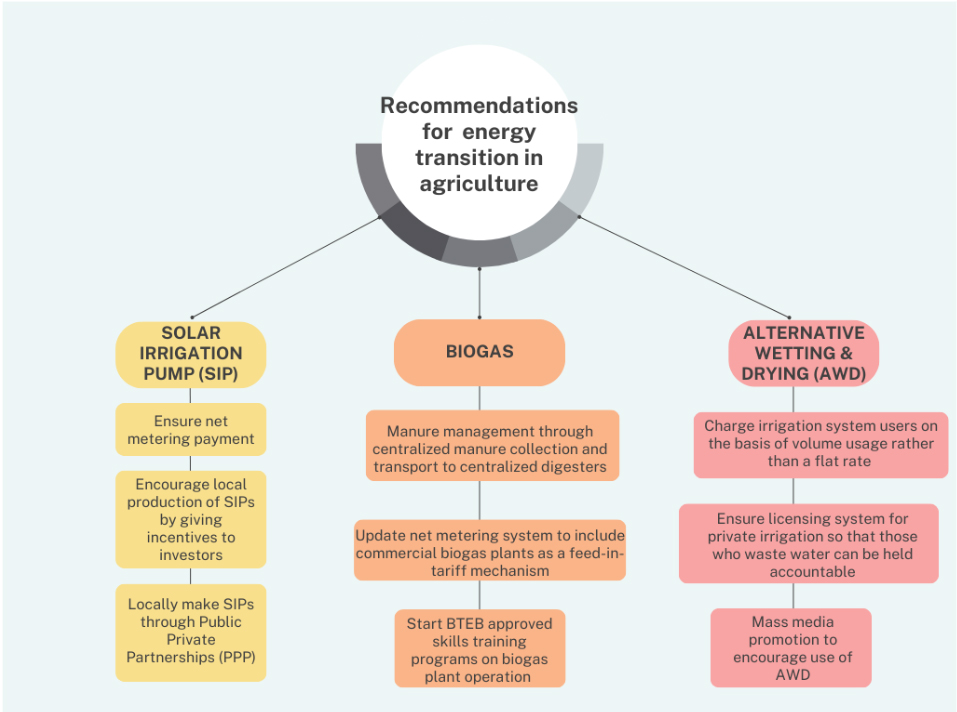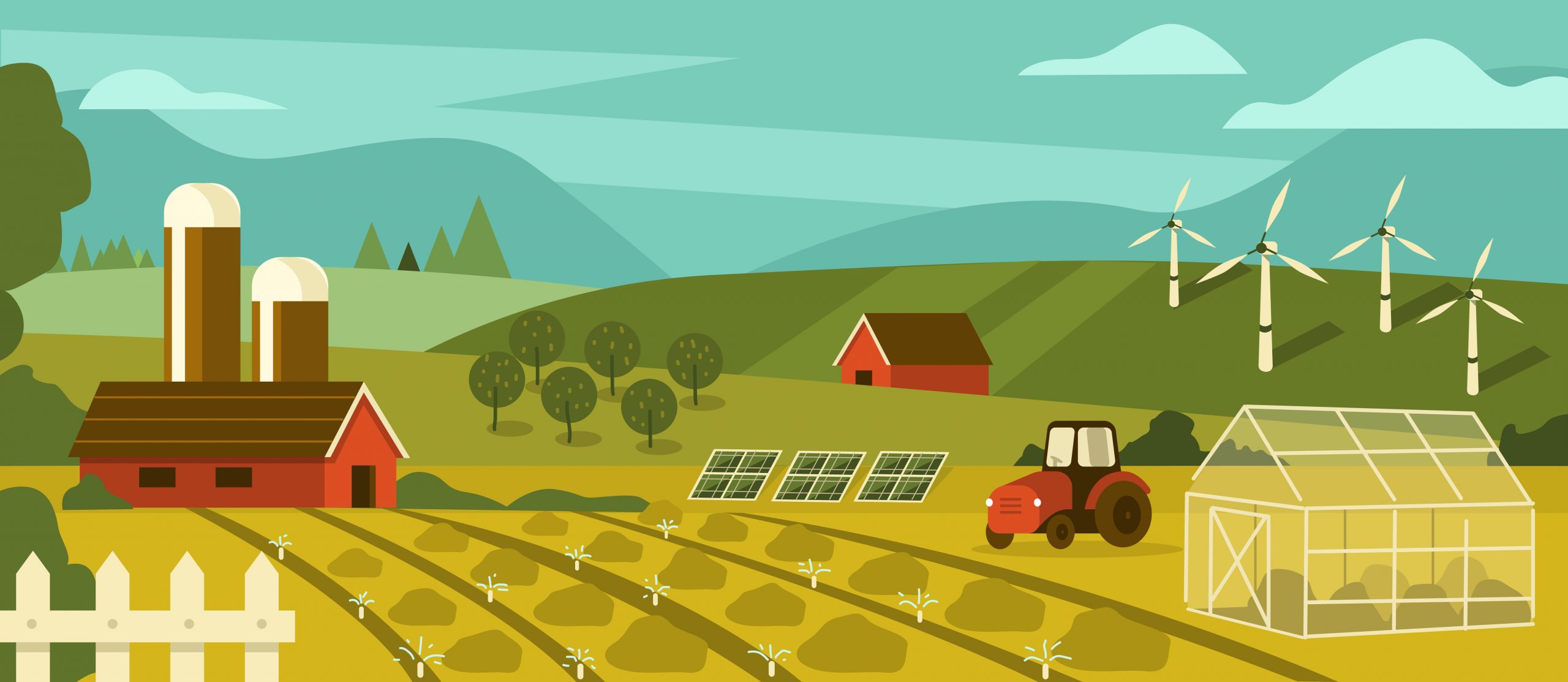This study on the Just Energy Transition of the Agriculture sector of Bangladesh has been commissioned by Oxfam in Bangladesh. The key objective of this study is to identify the avenues through which a just energy transition in agriculture could be materialized within the policy framework and the international commitments of Bangladesh.

The Government of Bangladesh has made commitments to reach the share of renewable energy target of 10% by 2020 and 30% by 2030 in the first Nationally Determined Commitments (NDC) after the signing of the Paris Accords. However, by 2020 the GoB has reached only 3.5% of the share of renewable.
The GoB in 2021 as part of the Glasgow pact, has revised the NDC 2021 with a sector-wise revised target. The Agriculture sector of Bangladesh is a major contributor to carbon emission about 27.13% of the GreenHouse Gas (GHG) emission in Bangladesh is attributable to the Agriculture sector.
Furthermore, in the Agriculture sub-sector analysis the cultivation of rice, particularly irrigation in the Boro season, the stagnating water in the rice fields and the livestock are the major sub-sectors in the Agriculture that contributes to carbon emission.
In this regard, the NDC 2021 has devised a strategy to reduce the emission in the agriculture sub-sectors by using specific targets based on the intervention. One of the mainstay interventions of reducing emissions from irrigation is using the Solar Irrigation Pumps (SIP). The SIP has been rolled out in Bangladesh for the last decade with support from JICA, KfW, GIZ with IDCOL as the major financial facilitator, Bangladesh Agriculture Development Corporation (BADC), Barindra Multipurpose Development Authority (BMDA), Bangladesh Rural Electrification Board (BREB) and Bangladesh Agriculture Research Institution (BARI) have also implemented SIP with Government funding. In the short-run SIP is cost effective for the farmers as the cost of diesel is replaced by a rent or ownership of the SIP, which on an average provides a farmer with a saving of BDT 5000 per season. However, the Government subsidy for the solar panels and the maintenance coverage of 5 years is just for one time, when the solar panel needs to be replaced and the maintenance cost will be incurred by the farmers, the cost to the farmers is likely to be reversed. Moreover, SIP is a top-down technical solution that is inconsiderate of the technical know-how of the marginalized farmers and enhances the privilege of the elite farmers to access water. Moreover, the SIP does not alleviate the problem of depletion of the groundwater aquifers and the expansion of the SIP is not synchronized with the Delta Plan 2100 as different institutions are independently building SIP linearly focusing on the irrigation needs without considering the long-term impact on the agriculture ecosystem and the groundwater conditions.
The installation of Biogas plants is another major intervention mentioned in the NDC 2021. The installation of Biogas in Bangladesh started in earnest in 2006 with support from IDCOL. Bangladesh has a booming livestock and poultry farming with Cumulative Accumulated Growth Rate (CAGR) of 62%, but the growth of the biogas plants has been very steady. The primary barrier to household biogas plants is the lack of technical expertise for maintenance of the biogas plants, the inability to turn the bioslurry (the liquid output from biodigester) to fertilizers and the unavailability of feed stocks for smoothly operating the small scale biogas plants. For the larger biogas plants, the initial investments are prohibitively high and the feasibility of large scale biogas plants in the moderate temperate zones is highly questionable due to efficiency losses. There are also concerns that the biogas plants will draw out more carbon emissions through livestock feed than the off-setting the carbon emission from fossil fuel sources.
The Alternate Dry and Wetting (AWD) Method which has been highlighted as one of the key interventions in the NDC 2021 to address the Methane emission from the stagnated water of rice fields and in general to reduce the irrigation needs of rice cultivation. AWD is a very low cost and simple technology to collectively save water and carbon emission. However, AWD has never reached scale and stayed within the realm of pilot schemes. The results from the pilot schemes have shown that there is an average reduction of water consumption by 26% and 24% reduction in carbon emission. There is also a limited financial benefit in using AWD compared to conventional methods, but the benefit to the individual farmer is very limited and the individual farmers are not incentivized to adopt AWD even in the pilot schemes. The policy limitation of fixed flat fee charging system, does not provide any incentives for reduction in consumption in water. A volumetric fee charging system would have incentivized farmers to adopt AWD, as there would be proportionate savings in financial benefit with water.
In conclusion, most of the interventions that the Government has adopted as part of reaching NDC targets in the agriculture sector is at a nascent stage and in most cases the technical solution has not been designed based on discussion with users, hence the community readiness for the technology is limited. The marginalized communities need to be compensated or incentivized for adoption of carbon efficient technologies.


